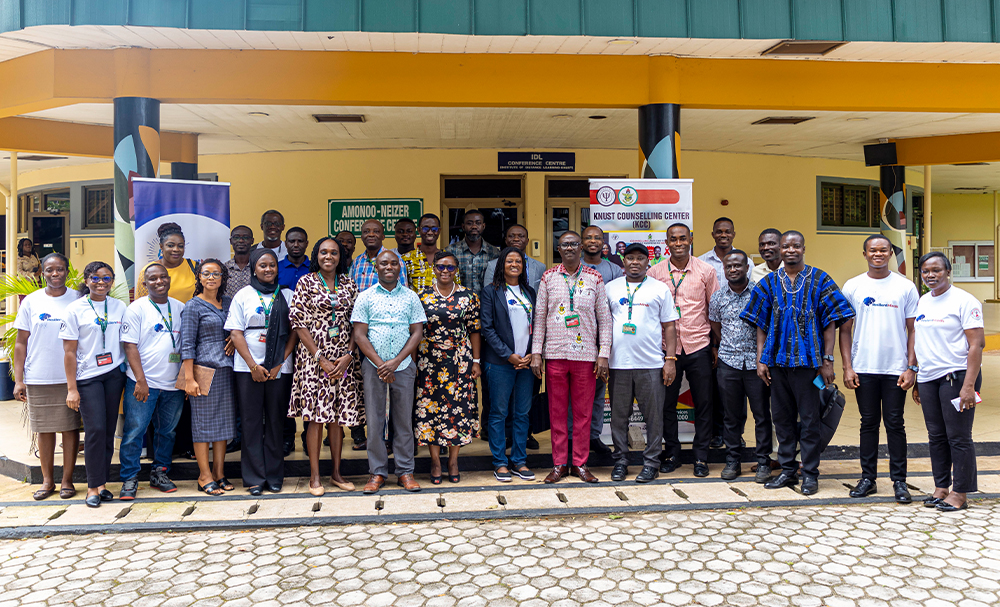The Counselling Centre at Kwame Nkrumah University of Science and Technology (KNUST), in partnership with Resilient Minds, a Johnson & Johnson-backed initiative, has held a capacity-building seminar for examination officers, hall tutors, and off-campus tutors to equip them with skills to identify and support students facing emotional and psychological distress.
Dr Joseph Asamoah Gyau, Deputy Head of the KNUST Counselling Centre, said the training forms part of a wider effort to empower frontline staff, who are often the first point of contact for students experiencing academic or personal challenges.
“This is about our students. As frontliners, you are in the best position to observe both the academic and emotional struggles they face,” Dr Gyau said. “This programme is designed to help you identify students in distress and connect them with the support they need.”
Mrs Bernice Ofosuhene Peasah, Senior Counsellor noted that while academic performance tends to receive more attention, non-academic factors significantly impact students' well-being. She cited common issues including emotional difficulties, social media addiction, stress, relationship problems, and health concerns.
She urged staff to practise active listening, patience, and tolerance when engaging with students and to initiate background conversations to gain deeper insight into their circumstances. “When in doubt, always refer the case to the Counselling Centre,” she advised.
Assistant Counsellor, Mr Rabbi Darko, speaking on crisis intervention, emphasised that the goal is to help students regain their coping abilities and return to normal functioning. He underscored the value of showing empathy and creating a reassuring environment.
“Building rapport is critical. It helps students feel safe enough to open up,” he said. He also advised staff to maintain professional ethics, obtain consent before taking action, and respect students’ beliefs and cultural backgrounds.
Mr Leroy Ankrah of Johnson & Johnson stressed the urgent need to prioritise mental health among students and young people by building resilience and robust support systems.
“The statistics are alarming as one in four people will experience a mental health issue in their lifetime,” he said. “This underscores the need to invest in the mental well-being of students, who are especially vulnerable.”
He outlined the objectives of the Resilient Minds project, which include raising awareness to help identify early signs of distress, reducing stigma through supportive environments, and strengthening institutional capacity through training and resource development.

















